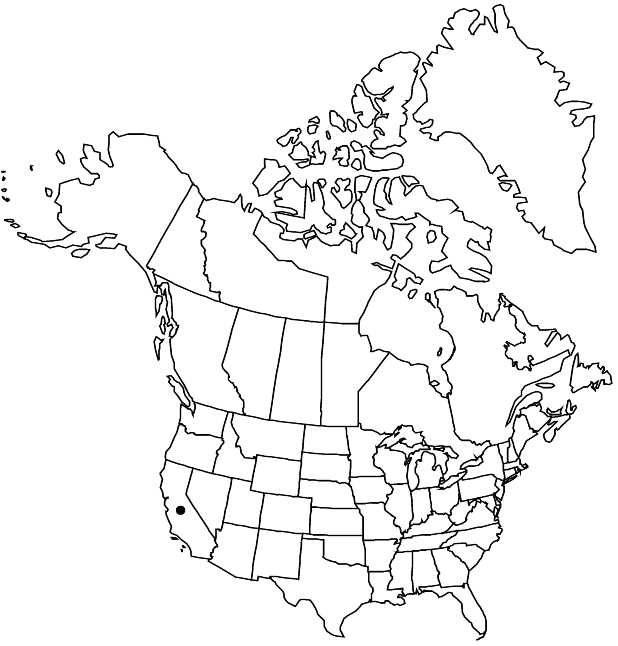Ribes sericeum
Proc. Calif. Acad. Sci., ser. 3, 2: 246, plate 24, fig. 9a–f. 1902 ,.
Plants 1–2 m. Stems erect, densely hairy, bristly, bristles often gland-tipped; spines at nodes 3, 6–12 mm; prickles on internodes dense, often gland-tipped. Leaves: petiole 0.5–1.5 cm, pubescent, stipitate-glandular; blade round-ovate, 3–5-lobed, cleft nearly 1/3 to midrib, 1–3.5 cm, base shallowly cordate, surfaces villous, stipitate-glandular, lobes cuneate-rounded, margins with 2–5 rounded teeth, apex rounded. Inflorescences pendent, solitary flowers or 2–3-flowered racemes, 3.5–4.5 cm, axis stipitate-glandular and pilose. Pedicels not jointed, 5–10 mm, pilose, stipitate-glandular; bracts lanceolate, 1–2 mm, pilose, stipitate-glandular. Flowers: hypanthium green, conic to campanulate, 3–4 mm, sericeous; sepals not overlapping, strongly reflexed, greenish red, long-triangular, 6–8 mm; petals connivent, erect, white, oblong-deltate-spatulate, strongly concave abaxially, 4–6 mm; nectary disc not prominent; stamens 2 times as long as petals; filaments linear, 1–1.3 mm, glabrous; anthers cream, oblong, 1.5–1.8 mm, apex blunt or rounded; ovary pubescent, copiously glandular-bristly; styles connate 3/4 their lengths, 15 mm, glabrous. Berries palatability not known, purple, globose, 15–25 mm, glandular-bristly.
Phenology: Flowering Apr–May.
Habitat: Streamsides
Elevation: 0-800 m
Discussion
Ribes sericeum is known primarily from the Santa Lucia Mountains; a disjunct population occurs north of Figueroa Mountain in Santa Barbara County.
Selected References
None.
